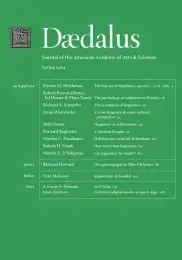Happiness as a Faustian bargain
In the original version of the legend, Faust gives Mephistopheles disposal of his soul in exchange for twenty-four years of pleasure. In Christopher Marlowe’s version, he becomes more demanding–he now asks for twenty-four years of pleasure plus power and knowledge.
In contrast to these rather predictable demands, Goethe’s Faust makes a deeply strange series of requests:
Poor sorry Devil, what could you deliver?
Was human mind in lofty aspiration ever
Comprehended by the likes of you?
Do you have food that does not satisfy?
Or do
You have red gold that will run through
The hand like quicksilver and away?
A game that none may win who play?
A girl who in my very arms
Will pledge love to my neighbor with her eyes?
Or honor with its godlike charms
Which like a shooting star flashes and dies?
Show me the fruit that rots right on the tree,
And trees that every day leaf out anew!
Though ready to oblige, Mephistopheles is incredulous:
Such a demand does not daunt me,
Such treasures I can furnish you.
But still the time will come around, good friend,
When we shall want to relish things in peace.
But Faust is implacable:
If I ever lie down upon a bed of ease,
Then let that be my final end!
If you can cozen me with lies
Into a self-complacency,
Or can beguile me with pleasures you devise,
Let that be the last day for me! [. . .]
If I to any moment say:
Linger on! You are so fair!
Put me in fetters straightaway,
Then I can die for all I care!1
What Faust wants most of all, that for which he is ready to sell his soul to the devil, is not, according to Goethe, a life . . .
